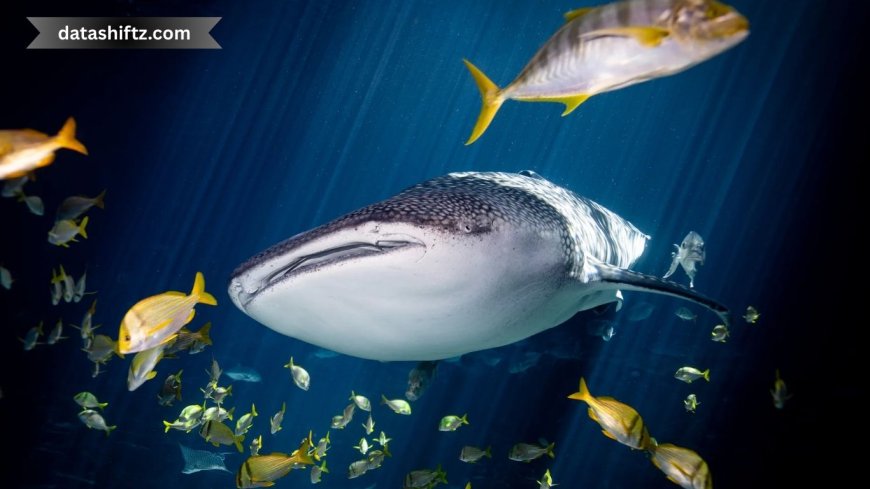Georgia Aquarium Whale Shark: An Update on the Ocean’s Gentle Giant

The Georgia Aquarium has long been renowned for its impressive collection of marine life, but none capture public fascination quite like the whale shark. As the largest fish species in the world, the whale shark draws visitors from around the globe. Today, we bring you the latest news and updates on the whale sharks at the Georgia Aquarium, highlighting their care, behavior, and ongoing conservation efforts.
The Majestic Whale Shark at Georgia Aquarium
The whale shark (Rhincodon typus) is a gentle giant, capable of growing up to 40 feet long and weighing as much as 20.6 metric tons. Despite their enormous size, whale sharks are filter feeders, primarily subsisting on plankton and small fish. Georgia Aquarium is one of the very few places in the world that houses these magnificent creatures, offering researchers and visitors alike a unique opportunity to learn about their biology and ecology.
Current Status of Whale Sharks at Georgia Aquarium
As of today, the Georgia Aquarium is home to three whale sharks: Nandi, Alice, and Trixie. These sharks have become the centerpiece of the aquarium’s Ocean Voyager exhibit, a massive tank designed to simulate their natural ocean environment.
| Name | Arrival Date | Length (feet) | Weight (tons) | Age (estimated) | Notable Facts |
|---|---|---|---|---|---|
| Nandi | 2009 | 26 | 12 | 15 | First whale shark successfully acclimated in captivity |
| Alice | 2012 | 28 | 13 | 20 | Known for her interactive behavior with divers |
| Trixie | 2016 | 25 | 11 | 10 | Youngest and most active among the trio |
The aquarium staff regularly monitors these animals for health, growth, and behavioral patterns to ensure their well-being.
Daily Care and Feeding: Behind the Scenes
Caring for whale sharks in captivity is a monumental task. The Georgia Aquarium team comprises marine biologists, veterinarians, and specialized aquarists who work around the clock to provide the best care.
Feeding Routine
Whale sharks are filter feeders, and replicating their natural diet in captivity requires precision. Their diet primarily consists of:
-
Krill
-
Plankton
-
Small fish like sardines
-
Specialized nutrient-enriched feeds
They are fed multiple times daily through a combination of direct feeding and encouraging natural filter feeding behaviors. The staff closely monitors their feeding to ensure each shark receives sufficient nutrition.
Health and Monitoring
The aquarium employs several innovative technologies to track the health of the whale sharks:
-
Ultrasound scans to monitor internal organs
-
Blood tests for overall health and disease prevention
-
Behavioral observation to detect stress or illness
The health of whale sharks is a priority, and any changes are addressed immediately with veterinary interventions when necessary.
Conservation Efforts and Research
The Georgia Aquarium is not just a place to see whale sharks; it is a hub for conservation and research aimed at protecting this vulnerable species.
Conservation Initiatives
-
Breeding Research: While breeding whale sharks in captivity has proven difficult, the aquarium is actively researching reproductive biology to increase understanding.
-
Tagging and Tracking: Collaborating with global research teams, the aquarium tags wild whale sharks to study their migratory patterns.
-
Public Education: Through interactive exhibits and educational programs, visitors learn about the importance of whale shark conservation.
Importance of Whale Sharks in Marine Ecosystems
Whale sharks play a vital role in maintaining the health of ocean ecosystems by:
-
Regulating plankton populations
-
Supporting marine food webs
-
Serving as indicators of ocean health
By protecting whale sharks, the aquarium contributes to the broader goal of ocean conservation.
Visitor Experience: What to Expect Today
Visitors to the Georgia Aquarium today can witness the grace and majesty of the whale sharks up close in the Ocean Voyager exhibit.
Highlights for Visitors
-
360-degree viewing tunnel offering immersive views of the sharks swimming overhead
-
Interactive feeding sessions where visitors can learn about whale shark diets and behaviors
-
Educational talks and presentations by marine biologists throughout the day
-
Special exhibits featuring the latest research findings on whale sharks and ocean conservation
Tips for Visitors
To make the most of your visit, consider these tips:
-
Arrive early to avoid crowds during feeding times
-
Use the aquarium’s app for guided tours and schedules
-
Engage with the educational staff to ask questions and learn more
-
Bring a camera for spectacular photos but respect the animals and keep noise levels down
Future Prospects: What’s Next for Georgia Aquarium’s Whale Sharks?
The Georgia Aquarium continues to innovate in its care and study of whale sharks. Upcoming plans include:
-
Expanding the Ocean Voyager exhibit to create more naturalistic environments
-
Increasing collaborative research with international marine organizations
-
Introducing new technology for real-time health monitoring
-
Enhancing visitor engagement through virtual reality experiences
The goal is to not only provide an unparalleled visitor experience but also to ensure the long-term survival and welfare of these incredible creatures.
Facts About Georgia Aquarium Whale Sharks
| Aspect | Details |
|---|---|
| Number of Sharks | 3 (Nandi, Alice, Trixie) |
| Average Length | 26–28 feet |
| Feeding | Multiple daily feedings (krill, plankton) |
| Conservation Role | Research, public education, global tagging |
| Visitor Experience | 360-degree tunnel, educational programs |
| Future Plans | Exhibit expansion, advanced health monitoring |
Why You Should Care About Whale Sharks
-
They are endangered: Threatened by fishing, habitat loss, and pollution.
-
They are ecological indicators: Their health reflects the state of our oceans.
-
They inspire conservation: Their majestic presence encourages people to protect marine environments.
Conclusion
The Georgia Aquarium’s whale sharks continue to captivate and inspire visitors with their sheer size, gentle nature, and critical role in marine ecosystems. Today’s updates highlight not only the meticulous care and cutting-edge research dedicated to these majestic creatures but also the aquarium’s unwavering commitment to conservation and education. By supporting such institutions and spreading awareness, we all play a part in protecting whale sharks and preserving the health of our oceans for future generations. Whether you’re a marine enthusiast, a casual visitor, or someone passionate about wildlife conservation, the story of Georgia Aquarium’s whale sharks is a powerful reminder of the beauty and fragility of life beneath the waves.






























